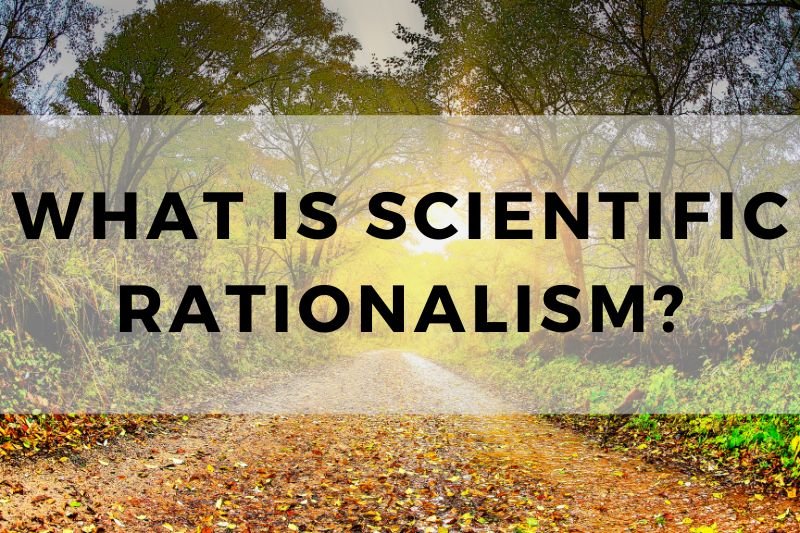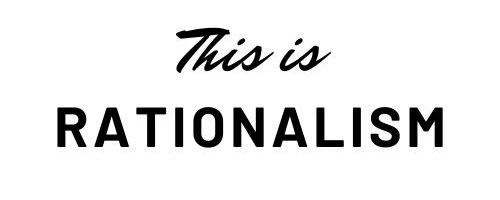
Can we trust reason and evidence to explain the world? Scientific rationalism says yes. It is a way of thinking that values logic, observation, and consistency. It seeks truth through testable ideas and systematic inquiry. Unlike blind faith or unchecked intuition, it demands proof.
This approach drives scientific progress. It shapes how we understand nature, society, and even ourselves. It rejects superstition and insists on verifiable facts. It is not just for scientists—it influences daily decision-making.
By exploring its principles, we see why it remains a powerful tool for knowledge. Understanding scientific rationalism helps us think more clearly.
Introducing Scientific Rationalism
What Is Scientific Rationalism?
Scientific rationalism is a method of thinking that prioritizes reason, evidence, and systematic observation. It asserts that knowledge should be based on logical analysis and empirical data rather than tradition or personal belief. This philosophy underlies the scientific method, ensuring that claims are tested, falsified if necessary, and refined over time. It is widely used in scientific research, technological advancements, and critical thinking.
This approach differs from pure rationalism, which relies solely on reason, and from empiricism, which focuses only on sensory experience. Scientific rationalism integrates both. It seeks to explain the natural world by applying rigorous testing and logical consistency. This foundation makes it essential for scientific inquiry and decision-making.
Origins of Scientific Rationalism
Scientific rationalism has deep historical roots. Ancient Greek philosophers like Aristotle laid its foundation by promoting observation and logical deduction. However, the modern form emerged during the Scientific Revolution (16th–18th centuries). Thinkers like Galileo Galilei and Francis Bacon championed empirical methods, emphasizing experimentation over speculation. Their work challenged long-held beliefs and reshaped human understanding.
The Enlightenment further advanced scientific rationalism. Philosophers like René Descartes and John Locke emphasized reason and experience as the paths to knowledge. The rise of modern science solidified its role in research and discovery. Today, it remains central to scientific progress, guiding how theories are tested and refined.
Key Figures
Several thinkers have shaped scientific rationalism.
- Francis Bacon (1561–1626): Developed the empirical method and promoted inductive reasoning. He argued that science should be based on observation and experiment, not tradition.
- Galileo Galilei (1564–1642): Used systematic experimentation to challenge Church doctrines. His support for heliocentrism exemplifies the power of evidence-based reasoning.
- René Descartes (1596–1650): Advocated for doubt and logical analysis. His statement, “Cogito, ergo sum” (“I think, therefore I am”), emphasized rational thought.
- Isaac Newton (1643–1727): Unified physics through mathematical laws, demonstrating how rationalism and empiricism could work together.
- Karl Popper (1902–1994): Introduced falsifiability as a key criterion for scientific theories. He argued that science progresses by testing and rejecting incorrect hypotheses.
These figures laid the groundwork for modern scientific rationalism. Their contributions continue to influence how knowledge is pursued today.
Core Principles of Scientific Rationalism
#1. Empiricism
Empiricism states that knowledge comes from sensory experience. Scientific rationalism relies on data gathered through observation and experimentation. Without empirical evidence, claims remain speculative and unverified. Science progresses by testing ideas in controlled environments and analyzing results.
For example, in medicine, treatments must be tested through clinical trials. If an experiment fails to produce consistent results, the hypothesis is reconsidered. Empirical methods prevent reliance on intuition or authority. This principle ensures that conclusions are based on measurable reality, not personal belief. It separates scientific inquiry from superstition and subjective reasoning.
#2. Objectivity
Objectivity requires researchers to minimize personal bias. Scientific rationalism demands impartial analysis based on facts. Scientists use peer review, standardized methods, and blind testing to reduce subjectivity. Conclusions must be independent of personal opinions or external pressures.
For example, a physics experiment should yield the same results regardless of who conducts it. If outcomes differ based on the researcher’s expectations, the study lacks objectivity. Scientific rationalism insists that evidence, not preference, determines truth. This principle strengthens the reliability of scientific knowledge and prevents misleading conclusions.
#3. Consistency
Scientific theories must align with established facts. If a new claim contradicts proven principles without justification, it requires scrutiny. Scientific rationalism values consistency across different studies, disciplines, and observations.
For instance, Einstein’s theory of relativity built upon Newtonian mechanics while refining its limits. It did not ignore previous findings but incorporated them into a broader framework. Inconsistent theories lead to confusion and scientific dead ends. Scientific rationalism ensures that knowledge builds logically rather than existing as isolated, conflicting ideas.
#4. Falsifiability
A scientific claim must be testable and capable of being proven false. Karl Popper emphasized falsifiability as a key criterion for distinguishing science from pseudoscience. If an idea cannot be tested or disproven, it lacks scientific validity.
For example, astrology makes vague predictions that cannot be tested objectively. In contrast, Einstein’s predictions about gravity were falsifiable—and later confirmed. Falsifiability encourages progress by allowing flawed theories to be discarded. It prevents adherence to dogma and promotes continual refinement of knowledge.
#5. Logical Reasoning
Scientific rationalism depends on logic. Arguments must follow sound reasoning and avoid fallacies. Deductive and inductive reasoning are key tools in forming hypotheses and analyzing data.
For instance, in mathematics, proofs rely on strict logical steps. In science, researchers use logical structures to ensure their conclusions are valid. Flawed reasoning leads to incorrect interpretations and unreliable results. Logical consistency ensures that scientific knowledge is coherent and dependable.
#6. Causality
Scientific rationalism assumes that events have causes. Understanding these cause-and-effect relationships allows for accurate predictions and explanations. Without causality, science would be reduced to random observations without deeper understanding.
For example, smoking is linked to lung cancer through clear causal mechanisms. This knowledge allows for prevention and treatment. If scientific inquiry ignored causality, medicine and engineering would be ineffective. Identifying causes helps humanity solve problems and improve technologies.
#7. Provisional Knowledge
All scientific knowledge is subject to revision. Scientific rationalism acknowledges that new evidence may overturn existing theories. Unlike dogmatic belief systems, it does not claim absolute certainty.
For example, Newtonian physics was once considered complete, but Einstein’s relativity expanded upon it. Scientific theories evolve as new discoveries emerge. This flexibility allows for progress and prevents stagnation. Science refines itself through continuous testing and improvement.
#8. Universalism
Scientific principles apply everywhere, regardless of culture, location, or background. Truth is not dependent on personal beliefs, nationality, or traditions. Scientific rationalism rejects subjective interpretations in favor of universal laws.
For instance, the laws of gravity function the same way on Earth and in space. A valid experiment should produce the same results in any laboratory. Universalism ensures that science remains objective and free from social or ideological bias.
#9. Determinism
Scientific rationalism often assumes that natural events follow predictable patterns. Determinism suggests that given the same conditions, the same outcome will occur. This principle underlies scientific predictions and technological advancements.
For example, chemical reactions occur based on fixed laws. Engineers design machines assuming consistent physical properties. Without determinism, reliable science and technology would be impossible. Understanding patterns allows for accurate forecasting and innovation.
#10. Naturalism
Naturalism asserts that natural laws govern the universe. Scientific rationalism does not rely on supernatural explanations. It focuses on material causes that can be tested and verified.
For example, diseases are explained through germs, not mystical forces. Weather patterns are studied using atmospheric science, not divine intervention. Naturalism ensures that scientific inquiry remains grounded in reality. It allows for meaningful advancements in medicine, physics, and other fields.
Comparison with Other Philosophies
Scientific Rationalism Vs Empiricism
Empiricism states that all knowledge comes from sensory experience. It rejects innate ideas and prioritizes observation. Scientific rationalism, while embracing empirical methods, also values logical reasoning and theoretical frameworks. Empiricism alone risks relying only on direct experience, which can be limited or misleading.
For example, scientific rationalism allows for hypotheses based on logical deduction, even before direct observation. The prediction of black holes was based on Einstein’s equations before they were observed. Empiricism alone would have dismissed such ideas. Scientific rationalism balances empirical evidence with logical coherence, making it a more comprehensive approach to understanding reality.
Scientific Rationalism Vs Rationalism
Rationalism prioritizes reason as the primary source of knowledge. It argues that truth can be discovered through logical thought alone, without needing empirical evidence. Scientific rationalism, however, integrates both logic and observation. It does not accept pure reason without verification.
For instance, Descartes believed that fundamental truths, like the existence of the self, could be known without experience. In contrast, scientific rationalism insists that even logical deductions require testing. Mathematics and logic are useful, but without empirical validation, they remain abstract. Scientific rationalism prevents speculation from replacing evidence-based conclusions.
Scientific Rationalism Vs Skepticism
Skepticism questions the certainty of knowledge. Radical skeptics argue that absolute truth is unattainable. While scientific rationalism acknowledges uncertainty, it does not reject the pursuit of knowledge. It maintains that while all knowledge is provisional, it can still be reliable and useful.
For example, skeptics may argue that science can never fully prove anything. Scientific rationalism responds by emphasizing probability and consistency. Newton’s laws were refined but not discarded. Scientific knowledge evolves, but it remains the best tool for understanding reality. Unlike extreme skepticism, scientific rationalism seeks to build knowledge rather than endlessly doubt it.
Conclusion
Scientific rationalism is a powerful method for understanding the world. It combines empirical evidence with logical reasoning to produce reliable knowledge. Unlike pure rationalism or empiricism, it balances observation with theoretical analysis. It rejects dogma, superstition, and subjective bias in favor of testable claims.
This philosophy has driven scientific progress and technological advancements. It ensures that knowledge remains provisional, open to refinement, and universally applicable. By embracing scientific rationalism, individuals develop critical thinking skills and make informed decisions. In an age of misinformation, applying its principles is essential for distinguishing truth from falsehood.
